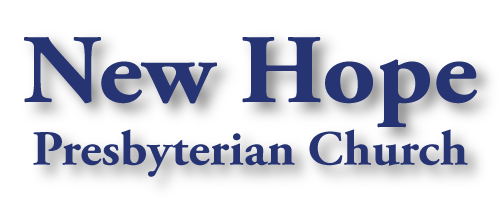A Trinity of Immorality
We’ve spent the last two weeks considering the most important, discouraging doctrine—sin. Adam and Eve were seduced by the subtle and tempting sales pitch of Satan, and that curse still haunts us today. Like our first parents, we don’t want to depend on God; we want to be gods. And when the love of self replaces love for God, there is no end to the evil that will result.
The story of David, Bathsheba, and Uriah captures one of the Bible’s most scandalous acts of evil (2 Samuel 11-12). But one of the Bible’s most beautiful acts of confession comes from this tragedy, written in Psalm 51. I want to spend the next several weeks dissecting a few verses because it provides one of the Bible’s practical definitions of the doctrine of sin and how it reveals itself in everyday life.
David uses a trinity of words: transgression, iniquity, and sin. Today will be a high-speed summary, and then, in the following weeks, we’ll look at each element more closely.
Have mercy on me, O God,
according to your steadfast love;
according to your abundant mercy
blot out my transgressions.
Wash me thoroughly from my iniquity,
and cleanse me from my sin!
(Psalm 51:1-2, ESV, emphasis mine)
Transgression of the Rebellious
To transgress is to know where the boundaries are and willingly step over them for the purpose of convenience or comfort. I transgress when I park in a spot explicitly marked “No Parking.” I know the law tells me not to park there, but I don’t care what the law says. I am focused only on myself and my selfish desires, violating what is prohibited.
Iniquity of the Soiled
Iniquity is moral uncleanness, corrupting everything we desire, think, say, and do. This infection reaches every aspect of my being. There is nothing in me that remains unstained. It is stunning to consider, but not a single part of my being is morally pure. Every infant except the Lord has come into the world with an untreatable condition, the pervasive infection of iniquity.
Sin of the Weak
If iniquity is moral uncleanness, then sin is moral weakness. Whereas transgression is a willful rebellion, sin leaves me weak and incapable of consistently obeying God, even if I were to desire to do what is right.
There is a significant contradiction between what the Bible says about us in passages like Psalm 51 and what we would like to think is true about us. Sinners are quite skilled at ignoring our own sins while being highly sensitized to the sins of others. Self-righteous Christians are very quick to blame what is outside of us, in our environment, before looking inwardly at ourselves as the root of the problem.
As Psalm 51 invites us to look intently into it, as into a mirror, it paints a humbling and accurate self-assessment. The doctrine of sin confronts each of us with the reality that my biggest problem is moral. Something is wrong inside me, and in one way or another, it influences everything I desire, think, choose, say, and do.
This “terrible trinity”—transgression, iniquity, and sin—captures the doctrine of sin and the nature of the war that rages inside each of us.
How can it do anything other than drive us to seek the grace that can only be found in the perfect Trinity?
We need an unsatisfied Father who will exercise his sovereign power to set a plan in place that will rescue us from us. We need a willing Son to take our punishment so that we can be forgiven. We need a powerful Spirit who will dwell within us, enabling us to do what we would not otherwise be able to do.
We haven’t been left to the ravages of this terrible trinity of transgression, iniquity, and sin because the love of a better Trinity has rescued us!
God bless,
Paul David Tripp
Reflection Questions
1. When was the last time you were very quick to point out the sin, weakness, or failure of someone that you love? What did that person do that you could have chosen to forgive, overlook, or treat with grace? (Remember, grace never accepts wrong or calls it right, but rather, grace is a way of responding to the sin, weakness, and failure of someone else). Why were you so quick to criticize or condemn?
2. When was the last time you were very quick to defend yourself when someone confronted your sin, weakness, or failure? Did you take even a moment to consider if they were even partially accurate in their critique? Why were you so offended by the confrontation?
3. When was the last time you knowingly and willingly transgressed over a boundary written by God or human authority? What was your motivation? What was the “promise” on the other side of the transgression that lured you into willful violation? Did the promise deliver?
4. When was the last time you experienced your own personal iniquity and weakness of sin? That is, despite your best intentions to remain pure, you found yourself having “soiled” thoughts and desires, and despite your best actions, you continued to fall short of the standard of holiness that God has set out in his Word? Refer to Romans 7:15-20.
5. How did you respond to your transgression, iniquity, and sin? Did you ignore it or minimize its significance? Did you wallow it guilt, shame, and self-hatred? Somewhere in between? How does the entirety of Psalm 51 direct us to respond to our trinity of immorality? Be specific and apply it to your everyday life.

